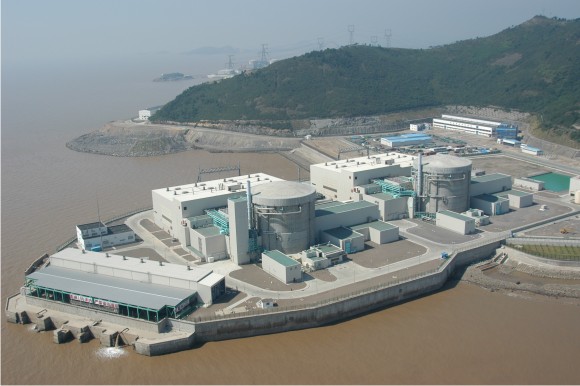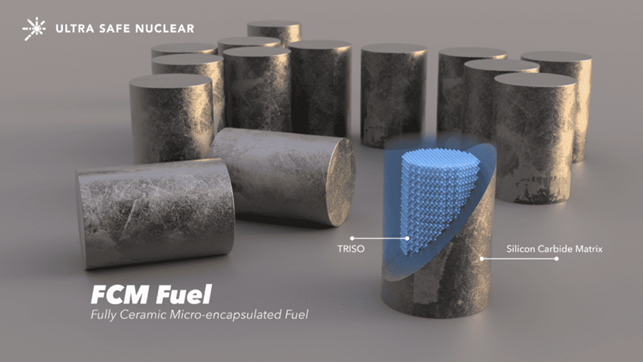The CANDU reactors at Qinshan. (Photo: Wikimedia/Atomic Energy of Canada Limited)
SNC-Lavalin subsidiary Candu Energy recently announced that it is engaged in pre-project design and engineering work at the Qinshan Phase III nuclear power station in China’s Zhejiang Province with Third Qinshan Nuclear Power Company (TQNPC), the plant’s operator.
As part of a nonproliferation agreement, Canada and the U.S. undertook a multi-year campaign to ship liquid high-enriched uranium material from Chalk River to Savannah River.
State troopers and first responders at a TRM roadshow stop in Virginia. The display LWT cask can be seen at the far right in its shipping container. (Photos courtesy of DOE/NNSA)
In March 2012, during the Nuclear Security Summit in Seoul, South Korea, the governments of Canada and the United States committed to work cooperatively to repatriate approximately 6,000 gallons of high-enriched uranyl nitrate liquid (HEUNL) target residue material (TRM) stored at the Chalk River Laboratories in Ontario to the U.S. Department of Energy’s Savannah River Site in South Carolina. The announcement was part of a larger agreement between the two countries to reduce proliferation risks by consolidating high-enriched uranium at a smaller number of secure locations.
Fully ceramic microencapsulated fuel. Image: USNC
Canadian Nuclear Laboratories (CNL) announced last week that it has fabricated fully ceramic microencapsulated (FCM) fuel pellets, a proprietary reactor fuel designed by Ultra Safe Nuclear Corporation (USNC) for its Micro Modular Reactor (MMR). The FCM project, funded through the Canadian Nuclear Research Initiative (CNRI), represents the first time that tristructural isotropic (TRISO) fuel has been manufactured in Canada, according to CNL.




